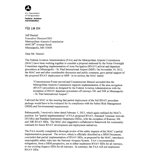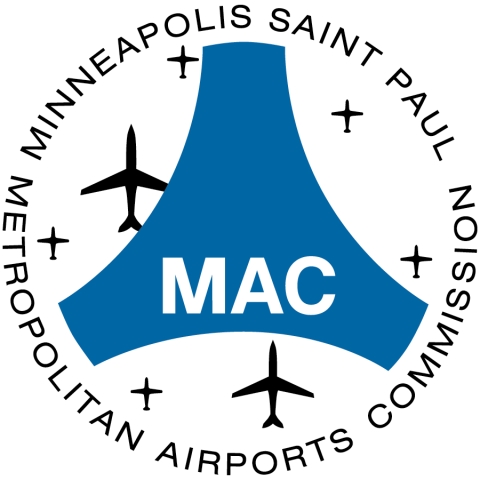MINNEAPOLIS & ST. PAUL, Minn.--(BUSINESS WIRE)--The Metropolitan Airports Commission (MAC) today received a letter from the Federal Aviation Administration (FAA) indicating that the FAA will not implement Area Navigation (RNAV) departure routes at Minneapolis-St. Paul International Airport (MSP) at this time.
The RNAV technology enables aircraft to consistently fly specific, predictable, pre-determined routes, enhancing safety and efficiency while reducing fuel burn and emissions. RNAV is a key part of the federal NextGen program for addressing congestion and improving safety and efficiency in the national airspace.
In September 2012, the FAA proposed a plan to implement RNAV procedures on all runways at MSP. The Noise Oversight Committee (NOC), which advises the MAC on noise issues around MSP, determined that the FAA had satisfied all the criteria the NOC had established for RNAV development, and the FAA plan then went to the MAC board for consideration in November 2012.
MAC board members heard from many area residents concerned about potential noise impacts under the proposed RNAV departure routes. Based on those concerns, the MAC board voted to support only partial implementation of the FAA plan, withholding support for RNAV departures off runways 30L and 30R, over the heavily populated areas north and west of MSP. The FAA indicated it would need to study the safety implications of partially implementing the federal RNAV plan for the airport.
The letter received by the MAC today indicates the FAA is concerned that implementing RNAV departures on some runways and not others could create “unacceptable safety risks.” Therefore, the FAA will not implement RNAV departures from any runways at MSP at present.
The FAA will, however, move forward with the approved RNAV arrival procedures on a timeline still to be determined. Currently, arriving aircraft perform a stepped descent, reducing altitude and plateauing a number of times before landing. Under RNAV arrival procedures, aircraft remain at a higher altitude longer and, once they begin descending, continue to do so with the engines in an idle configuration until landing. Staying higher longer with the engines at an idle setting reduces noise impacts and emissions. Arriving aircraft have to line up with runway headings whether or not they use RNAV, so flight paths will not change under an RNAV approach process.
Jeff Hamiel, executive director and CEO of the Metropolitan Airports Commission, said that safety must remain the top priority. “While we had initially hoped the FAA could implement RNAV departures in areas to the south and east of the airport where there were significant opportunities to reduce noise impacts, we obviously don’t want them to do so if they believe a partial implementation would be unsafe,” Hamiel said.
The FAA letter provides no timeline for revisiting the issue of RNAV departures at MSP. “If RNAV SIDs [departures] are reconsidered by FAA at any time in the future,” the letter states, “we would welcome the opportunity to work with you and the MSP Noise Oversight Committee on a community outreach plan as outlined in your February 1, 2013 letter.”
That letter from MAC CEO Jeff Hamiel to FAA Airspace Service Director Dennis Roberts recommended that any future effort by the FAA to implement RNAV departures at MSP involve a robust FAA outreach program to affected communities, early coordination with community leaders, investment of adequate resources to address local expectations, and authorization for local air traffic control representatives to lead resource allocation and community outreach efforts.
{Note: A copy of the FAA’s decision letter is attached.}




